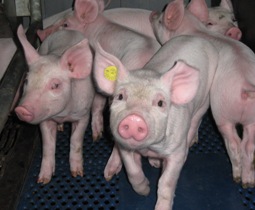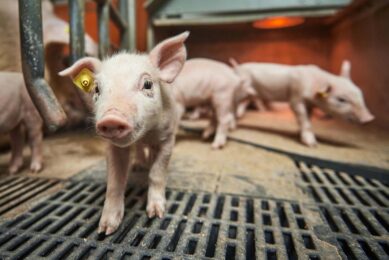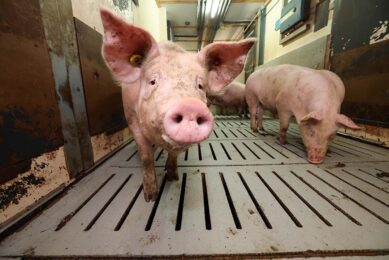77% of European pigs castrated without anesthetic

As part of the PIGCAS research project (Attitudes, practices and state of pig castration in Europe), a team of European scientists has just demonstrated that, of the 125 million male pigs slaughtered each year in Europe, 77% are castrated without anaesthetic.
The main conclusion of the study, that forms part of the PIGCAS project, is that these animals are castrated directly by the livestock farmers, without anaesthetic and in some cases, without respecting the European legislation.
Castration practices
This investigation, which appears in the most recent issue of the journal Animal, confirms that some countries fail to comply with the regulation for these practices, given that the European legislation states that castration without anaesthetic must be carried out within the first seven days of the animal’s life. After this period it must be done by a vet using anaesthetic.
Norway and Switzerland have banned surgical castration without anaesthetic to prevent pigs from suffering and now they are looking into enabling the breeding of intact males (without castrating). However this option also has some disadvantages: “The breeding of ‘intact’ males is quite complicated, because when they reach sexual maturity there is more fighting and mounting amongst the animals, in addition to the pigs suffering from stress and injuries”, Maria Font i Furnols, co-author of the study and researcher in the Institute for Food and Agriculture Research and Technology (IRTA), indicated to SINC.
Castration in Spain
In Spain roughly 30% of male pigs for conventional production are castrated. The most common method is surgical castration without anaesthetic. In non-conventional production, which includes large-scale pig breeding, almost all the males are castrated, as they are slaughtered at heavy weights for the production of high-quality cured products.
According to Font i Furnols, within the IRTA they have already studied aspects of breeding and handling of intact males to try to minimize the negative effects of stopping castration. They are also working on other alternatives to surgical castration, such as immunocastration, a technique recently authorised in the European Union, which has been used for years in Australia and New Zealand, and which involves vaccinating the pigs to reduce the production of the chemical compounds responsible for the “boar taint” from the meat.
Female pigs
In the case of female pigs, the legislation does not consider castration unless it is for therapeutic or diagnostic reasons. However based on the PIGCAS project it has been confirmed that in some countries this practice is carried out.
In 88% of the cases analysed in Europe it is the livestock farmers themselves who carry out the castration. This is due to the demands of the market. This way the sexual smell is avoided, a sensorial defect in the meat of some male pigs that are not castrated, it can allow for a better handling of the animals in the farm and it results in the meat containing more fat and finer marbling, a characteristic which is valued in cured products.
Join 18,000+ subscribers
Subscribe to our newsletter to stay updated about all the need-to-know content in the pigsector, three times a week. Beheer
Beheer










 WP Admin
WP Admin  Bewerk bericht
Bewerk bericht